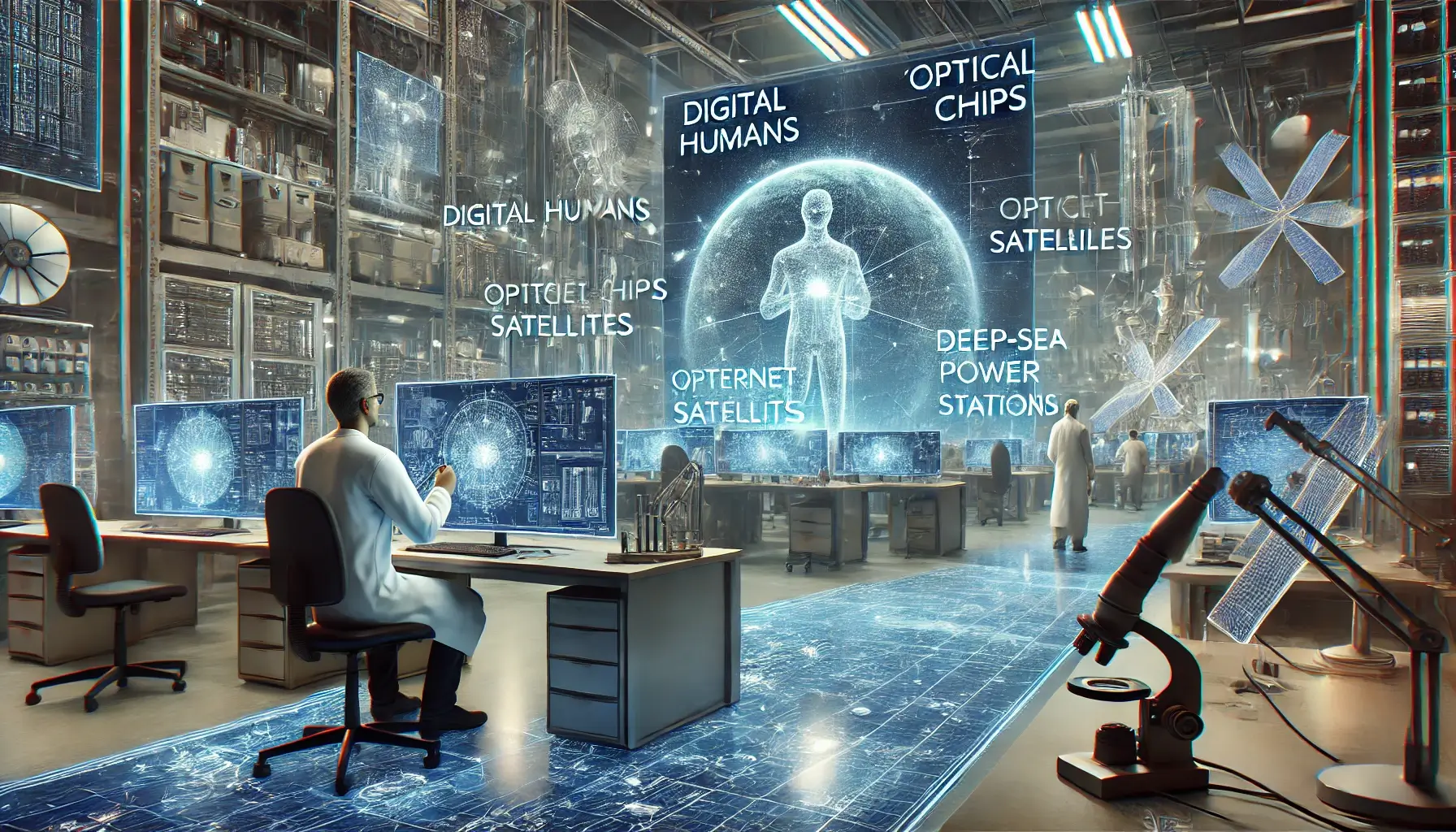The China Association for Science and Technology (CAST) has unveiled its annual list of key science and engineering challenges for the upcoming year. Highlighted areas include "digital humans," optical chips, internet satellites, and deep-sea power stations. These topics have garnered significant attention from research and industry groups in China.
Key Science Challenges
- Among the top 10 science challenges is research into "digital humans" and robots endowed with both intelligence and emotions. This area is expected to drive significant economic growth. Other critical challenges include improving the efficiency of coal power plants by integrating hydrogen production and developing ammonia-hydrogen-based internal combustion engines with near-zero emissions.
- CAST's list also addresses broader scientific questions such as discovering the biological mechanisms behind plants' efficient use of light and determining if ancient human fossils found in China are ancestors of modern Chinese populations.
Engineering and Industrial Challenges
The list includes developing deep-sea platforms for power generation, enhancing the reliability of high arch dams in earthquake-prone areas, and improving autonomous engineering software. Another focus is on advancing technology and theories to control the quality of large-size semiconductor silicon single crystals, which could enhance the efficiency and power of advanced semiconductors.
Significant attention is also given to brain-computer interfaces, which China and the U.S. have started testing on humans, and the development of detection spacecraft for planets like Neptune. Industrial challenges involve green manufacturing of drugs through precision chemistry and using clean energy to produce low-carbon iron.
The application of cloud network technology for internet satellites, aimed at improving efficiency and data management, is also a key focus. Developing high-performance GPU chips for advanced computing and high-speed optical transmission technology under current chip limitations are critical engineering challenges highlighted by CAST.
Progress and Future Outlook
Progress has been made on several issues from CAST's previous lists. For instance, China recently unveiled the world's first carbon fiber composite passenger train and opened a 16 million-kilowatt wind and solar plant in the Kubuqi Desert, addressing earlier challenges related to high-speed trains and large-scale energy bases.
These efforts underscore China's commitment to advancing its technological capabilities and addressing complex scientific and engineering challenges, paving the way for future innovations and sustainable development.

